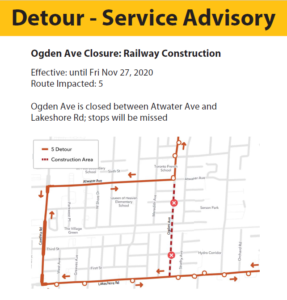November 16, 2020
The National Research Council of Canada (NRC) has opened a new advanced materials research facility in the City of Mississauga to serve as a national clean energy hub supporting research into new materials for industrial development and commercialization.
“We are thrilled that NRC chose Mississauga to locate its new regional advanced materials research hub. Mississauga is home to one of Canada’s largest, most diverse advanced manufacturing sectors,” said Bonnie Crombie, Mayor of Mississauga. “NRC Mississauga will become a key innovation asset in our City and will bring together industrial and academic partners to develop products, devices and systems that will create jobs and help Canada reach its sustainability goals. The City looks forward to working with and supporting the NRC and its key stakeholders as they conduct world-class, innovative research right here in Mississauga.”
The facility will support and undertake foundational research of new clean energy materials and transition them for industrial use. It will act as a regional innovation hub for clean technologies, and will be part of the Canadian Campus for Advanced Materials Manufacturing (CCAMM), a joint initiative between the NRC and the Xerox Research Centre of Canada (XRCC) that is adjacent to NRC Mississauga.
“The opening of our new facility in Mississauga represents a major stepping stone for the National Research Council of Canada in advancing Canada’s clean energy agenda,” said Roger Scott-Douglas PhD, Acting President, National Research Council of Canada. “Our vision is for this collaborative hub to become the home to new technologies that will enable industry to be more sustainable. We look forward to working with our partners in accelerating the development of advanced materials technologies and their commercialization into disruptive products for industry.”
Mississauga has the most diversified advanced industry business base in Canada, with over 11,000 companies falling into industries that perform high levels of research and development. The fully completed NRC facility in Mississauga will add roughly 100 researchers and support staff from the NRC, and a broad range of collaborators and partners from academia, other government departments and industry, from Canada and around the world.
“Mississauga is at the centre of Canada’s advanced manufacturing industry. Developing world-class products for blue chip clients from around the world, this sector employs some of the brightest and most talented Canadians,” said Bonnie Brown, Director of Economic Development. “The City of Mississauga is focused on creating an ecosystem where companies, businesses, community partners and talent, both young and seasoned can meet, innovate and grow. The City actively engages with our world-class manufacturers, academic institutions and government partners to create an exceptionally integrated ecosystem of top talent, product development and continuous improvement.”
Today, at a virtual ceremony, Roger Scott-Douglas, Acting President of the National Research Council of Canada, alongside the Mayor of Mississauga, Bonnie Crombie and collaborators, celebrated the opening of the NRC’s new research facility in Mississauga.
-30-

